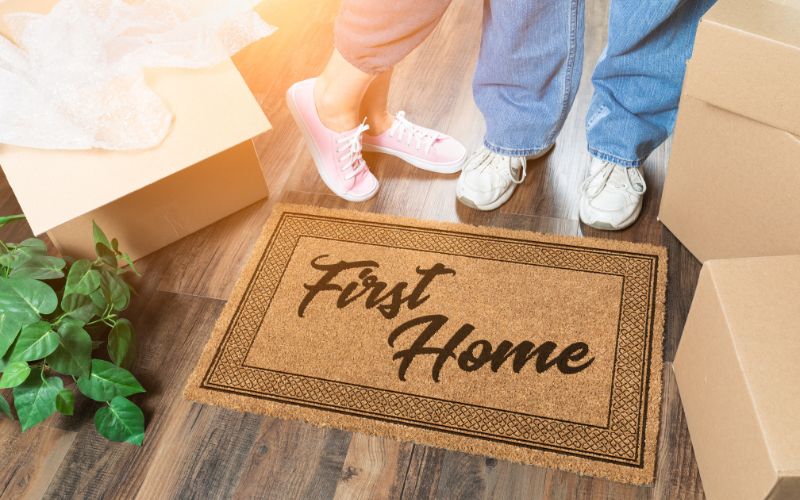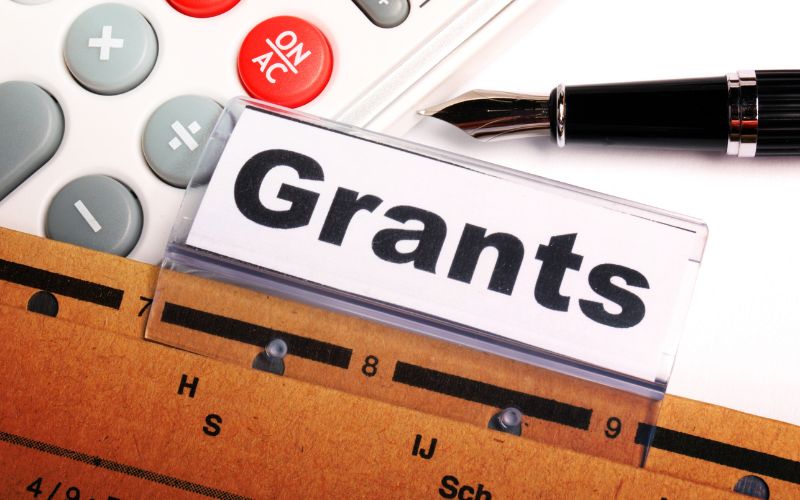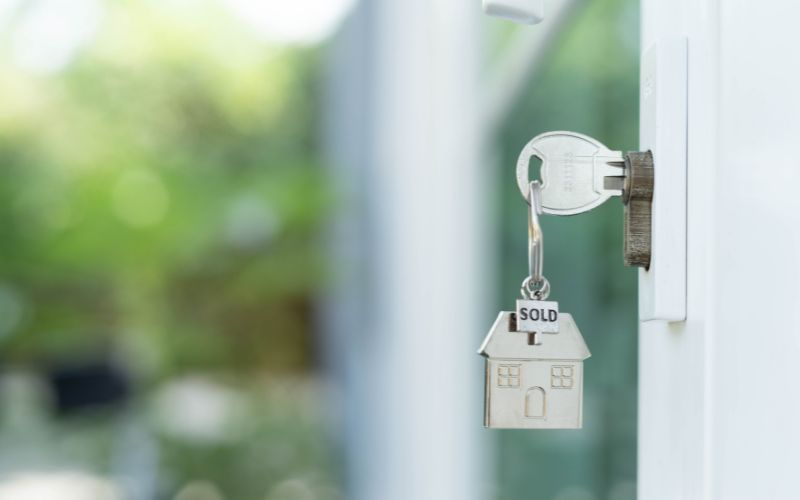Embarking on the journey of home ownership in New Zealand is an exciting milestone, and the government is eager to lend a hand.
Kāinga Ora provides a leg-up in the form of the First Home Grant, designed to make the dream of your first home more attainable. If you’ve been contributing to KiwiSaver for at least 3 years, you might be eligible for a grant that could contribute up to $10,000.
The First Home Grant eligibility requirements can seem daunting, but that’s where OneStop Financial Solutions is here to help.
So, if you’re considering buying for the first time, why not see if you qualify for a helping hand from the government? Your dream home might be closer than you think.
Table of Contents
What is the Kāinga Ora First Home Grant?

The Kāinga Ora First Home Grant is a New Zealand government initiative to help you get onto the property ladder.
The First Home Grant was introduced by the government to make home ownership more attainable for first-time buyers.
With assistance from the grant, the hurdle of saving for a deposit is made more manageable, especially when combined with your KiwiSaver.
Key Features
- Eligibility: You must have been contributing to KiwiSaver for at least three years, and be a first home buyer.
- Grant Amounts: Receive up to $10,000 for a new home or $5,000 for an existing home.
- Income Caps: Your annual income in the previous 12 months must be no more than NZ$95,000 before tax for a single buyer, or no more than NZ$150,000 before tax if you are two or more buyers.
- Property Price Caps: The home you wish to purchase must also meet specific price ceilings.
Changes Over Time
Over the years, the grant has evolved to address the changing needs of the housing market. For instance, the grant amount has increased to support buyers as house prices have risen.
The criteria for eligibility may also be updated periodically to reflect economic conditions and ensure the programme continues to serve the intended audience effectively.
Eligibility Requirements
Here is a summary of the eligibility requirements for the Kainga Ora First Home Grant:
General Eligibility:
- Must be over 18 years old.
- Income in the last 12 months below $95,000 for individuals, $150,000 for individuals with dependents, or $150,000 for multiple buyers.
- No current property or land ownership (except Māori land).
- Minimum contributions to KiwiSaver or equivalent for at least 3 years.
- Property must be within regional house price caps.
- Must occupy the new house for a minimum of 6 months.
- Property must meet specific requirements detailed on the webpage.
- If contributing to a non-KiwiSaver superannuation scheme, eligibility must be confirmed.
Income Requirements:
- Individual buyer: $95,000 or less before tax.
- Individual with dependents or 2+ buyers: $150,000 or less before tax.
- Dependents are those in part-time or full-time care, financial support alone does not qualify.
KiwiSaver Contribution Requirements:
- Regular contributions of at least 3% of total income or $1,000 annually, whichever is lower.
- Contributions can be non-consecutive but must total 3 years.
- Contributions from all income sources required.
- Non-earners must make voluntary contributions of at least $1,000 per year.
- Self-employed or beneficiaries must contribute at least once a year for 3 years, meeting the minimum requirement.
- Combination of automatic and voluntary contributions must meet the minimum annual requirement.
Deposit Requirements:
- Minimum 5% deposit of the purchase price required.
- Deposit can include KiwiSaver withdrawal, First Home Grant, savings, payments already made towards the property, or a family gift (with a completed declaration).
Previous Property Owners:
- To be eligible, you must not currently own any land or property. This includes properties owned by a spouse or de facto partner that could be lived in or sold.
- You may be eligible for the First Home Grant if you haven’t received it or its predecessors before.
- You must not have realisable assets exceeding 20% of the house price cap for the area. Realisable assets include savings, investments, valuable items (excluding KiwiSaver funds).
- Ownership of Māori land is exempt.
Māori Land Considerations
If you’re looking to buy Māori land, special considerations apply. Ensure the land intended for purchase is aligned with the grant’s guidelines, as different rules may apply, reflecting the unique status of Māori land.
House Price Caps

The house price caps are maximum price limits for properties eligible for the First Home Grant. They are based on the lower quartile estimated values of new and existing properties within each region of New Zealand.
These caps vary across different regions, reflecting the diverse property market conditions throughout the country. The regions are defined according to city and district council boundaries, and the house price caps are subject to change.
As of 15 May 2023, the price caps for existing and new properties range from as low as $400,000 in some districts to up to $925,000 in others, with specific caps differing for new versus existing properties within the same area.
This structured approach aims to align the grant eligibility with local housing market realities, ensuring the First Home Grant remains accessible and relevant to first-time homebuyers across New Zealand.
New vs Existing Homes
Existing property is defined as houses built and certified more than 12 months ago.
- The grant amount is $1000 for each year paid into your KiwiSaver for 3+ years, up to $5000 for 5+ years.
- You must agree to live in the home for at least 6 months from the settlement date (date you buy your home), or the date the code compliance certificate is issued (for new builds).
- If buying with others, you must be purchasing an equal share.
- If buying privately (not through a real estate agent), may need to provide evidence of paying a fair market price, e.g., a registered valuation.
- If you’re planning to renovate, the home must be habitable from settlement.
If You’re Buying Land to Build On
The Kainga Ora first home grant offers larger amounts for land purchases and new builds. Here is a summary if you’re interested in buying land:
- The grant amount is $2,000 for each year paid into the KiwiSaver scheme for 3+ years, up to $10,000 for 5+ years.
- You must have First Home Grant pre-approval before purchase of the land, or have your application submitted at least 4 weeks before settlement of the land.
- You can’t bank the land, you must plan to build or relocate a home immediately after preapproval of your grant and will need to provide a signed, fixed-price building contract with cost, start, and finish dates.
- You need to provide a signed sale and purchase agreement for the land.
- Copies of all relevant documents (house plans, property specifications) are required.
- You need to have organised sufficient funds to complete construction within the price cap.
- For self-builds or partial builds, a quantity surveyor’s report and a copy of the Statutory Declaration as to Owner-Builder Status is needed.
- You must build a permanent residential dwelling on the land, and live in the home for at least 6 months from the certificate issue date.
- The land and the construction costs of the build must be within the relevant house price caps.
If You’re Relocating an Existing House onto Land
If you’re open to a more unique route to homeownership, relocating a home can be a cost-effective solution. This involves moving an existing house to a new location, which can be a lot less expensive than buying a conventional property, especially in regions where land is more affordable.
It’s a creative option that could save you money if you’re up for the adventure. I was! And subsequently bought a home for $4000 which I moved onto a subdivided block of land.
You must provide a code compliance certificate for the relocated house, dated no more than 12 months before the application. You also require:
- A signed sale and purchase agreement for the land.
- Evidence of cost to purchase and transport the property.
- A fixed price building contract showing total cost and timeframes.
- A code compliance certificate after relocation.
If You’re Buying a Property Off the Plans
Purchasing off the plans means committing to a property that is yet to be constructed. It’s a leap of faith that can pay off with lower initial costs and the benefit of a brand new home upon completion.
This process often allows for some level of personalisation and, coupled with a trust in the developer, can lead to a home that truly reflects your preferences.
As with the other occupancy requirements, you must live in the property for at least 6 months from completion. You also need to provide:
- Copies of house plans and property specifications.
- A signed contract showing property details, purchase price, and projected construction dates.
The grant payment may be paid before settlement for initial or progress payment, held in trust or a similar arrangement.
If You’re Building on Māori Land
You must provide a copy of your right to occupy Māori land.
Applying for the Kainga Ora First Home Grant

With the long list of criteria and documents to provide, applying for the Kainga Ora first home grant might seem daunting. But that’s where the team at OneStop Financial Solutions is here to help.
Application Process
You have the option to seek pre-approval or apply for full approval. Pre-approval is advisable because it clarifies how much you might be granted before you make an offer on a home. For a full approval, submit your application after signing a sale and purchase agreement.
Documentation Needed
The documentation required includes:
- Proof of identity: A valid ID such as a passport or driver’s licence.
- Proof of income: Recent payslips or tax documents demonstrating your earnings.
- Proof of KiwiSaver membership: Evidence of contributions to a KiwiSaver account for at least three years.
- Sale and purchase agreement (if fully approving): A signed contract between you and the seller.
Pre-approval Mechanics
Pre-approval provides a head start in the home buying process. Here’s what you need to know:
- Validity: Your pre-approval is valid for six months, giving you time to find the perfect home without rushing.
- KiwiSaver contributions: They are an essential component for eligibility – maintain regular contributions to demonstrate financial responsibility.
- Decision tool: Utilise Kāinga Ora’s decision tool to assess your eligibility before applying.
Pre-approval is a great way to know where you stand, enabling you to confidently engage in the property market.
The Role of KiwiSaver
Your KiwiSaver account is more than just a retirement savings scheme—it’s a potential key to unlocking the door to your first home.
KiwiSaver Funds
Your KiwiSaver funds are essentially your savings that accumulate over time, consisting of your own contributions, contributions from your employer, and government contributions. If you’re self-employed, you won’t have employer contributions, but you can still make regular KiwiSaver contributions to build up your funds.
First-Home Withdrawal
You have the opportunity to make a KiwiSaver first-home withdrawal to assist with purchasing your first home. To qualify, you must have been contributing to KiwiSaver for at least three years. This can include not just your contributions, but also those made by your employer and government contributions as well.
KiwiSaver Providers
Different KiwiSaver providers offer various fund types, from conservative to growth, which will impact how your KiwiSaver balance grows. Choose a provider that aligns with your savings goals and risk appetite. When ready for withdrawal, they will guide you through the process of accessing your funds for your home purchase.
Loan Options
You have a couple of loan options to help you on your way to buying your first home. The First Home Loan is designed to help you if you can afford mortgage repayments but are struggling to save for a larger deposit.
For rural purchasers, there’s the Kāinga Whenua Loan, which helps those buying on multiple-owned Māori land. Regardless of the loan you’re considering, it’s vital that you connect with lenders who offer these specific mortgage products and that you understand the terms and conditions involved.
Other Home Ownership Supports
When considering purchasing your first home in Aotearoa New Zealand, there are a range of support options available to help you on your journey. Apart from the First Home Grant, you’ll find loans and programmes tailored to make home ownership more accessible, whether you’re in Christchurch, Wellington, or other regions like Selwyn and Waimakariri.
Kāinga Ora First Home Loan
The First Home Loan is designed to help first home buyers enter the property market by offering loans that require a smaller deposit than those typically needed. For example, you might only need a 5% deposit rather than the standard 20%.
This loan is supported by Kāinga Ora and can be a bridge to owning your first home, especially in regions like Wellington where the property market is highly competitive.
KiwiBuild Programme
The KiwiBuild Programme aims to provide affordable housing options to eligible first home buyers.
Through KiwiBuild, you could have a chance to purchase newly built homes that are priced below the local median market value, making it a potentially easier path to home ownership in areas like Christchurch, Selwyn and Waimakariri.
Regional Considerations
Regional factors may affect your application, particularly in relation to property price caps and market variations.
Auckland and Wellington Markets
In the bustling property markets of Auckland and Wellington, house price caps are set higher due to the significant demand and average property values in these areas. You’ll find that in these regions, you’re looking at higher thresholds which reflect this economic climate.
Regional Differences in Caps
Beyond Auckland and Wellington, property price caps vary significantly. For example:
- In the Waikato, you’re working with a different price cap than you would find in the Far North District.
- For cities like Dunedin, Napier, and Hastings, local market values shape the grants’ caps.
- Buyers in regions such as Bay of Plenty and Hawke’s Bay need to be conscious of regional caps when searching for eligible properties.
- The more affordable markets like Wairarapa, Gisborne, and Palmerston North City might offer more options within the First Home Grant thresholds.
- Porirua City, Upper Hutt City, Marlborough, and Nelson also have their unique cap structures to be aware of.
Each region carries its own market trends and living costs. Consider these factors when planning your first home purchase.
Frequently Asked Questions
How much is the First Home Grant in NZ?
The First Home Grant in New Zealand provides eligible first home buyers with up to $10,000 for a new home or up to $5,000 for an existing property.
How long does the KiwiSaver first home withdrawal take?
It takes approximately 10 business days to process your KiwiSaver first home withdrawal application.
What is the 3 Year Rule for KiwiSaver?
To be eligible for the first home grant, you must have been contributing to your KiwiSaver for at least 3 years. The time doesn’t have to be consecutive, however.
Conclusion
You might find that the Kainga Ora First Home Grant can be a significant boost on your journey towards home ownership. By meeting specific eligibility requirements, you could receive a generous contribution towards purchasing your very first home.
Remember, years of contributions to your KiwiSaver can finally pay off here, working in tandem with the government’s initiative to make housing more accessible.
Start by checking if you qualify for the grant. If you’ve been contributing to KiwiSaver for at least three years, you’re already on the right track. The amount you might obtain—up to $10,000 for a new property or $5,000 for an existing home—varies based on several factors, including your earned income and the property’s pricing.
Your application can either be for pre-approval before finding a home or for full approval after an offer is on the table. It’s often recommended to seek pre-approval; it clarifies your budget and streamlines the process. Besides, knowing your financial position upfront can be quite the advantage in the competitive housing market.
Should you have further enquiries or need assistance, the team at OneStop Financial Solutions are here to guide you. We invest the time to understand the fine print, to ensure our clients are well-prepared to optimise opportunities like the Kainga Ora First Home Grant.


